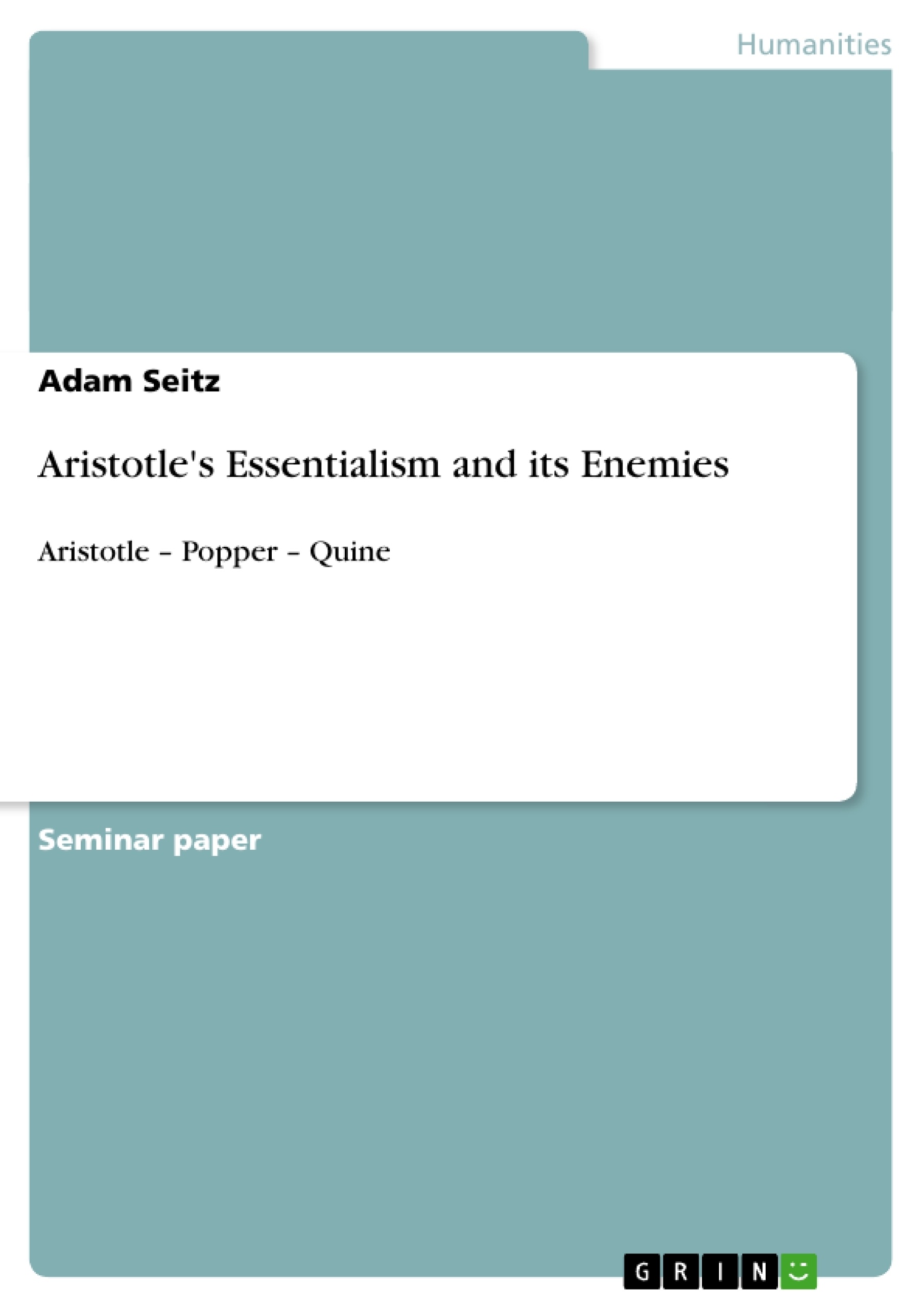The "Posterior Analytics," the oldest text on the philosophy of science known today, displays Aristotle’s ideas of systematic acquisition of scientific knowledge and its proper demonstration. On the basis of the Posterior Analytics, and by means of two examples, this essay wants to sketch the critique on essentialism and universals in the mid‐20th century. The focus is on Karl Raimund Popper’s account given in "The Open Society and its Enemies "(1945), namely book II chapter 11, and on Williard Van Orman Quine’s essay "On What There Is " (1948).
Inhaltsverzeichnis (Table of Contents)
- Aristotle's Essentialism and its Enemies
- Popper's Critique of Aristotle
- Quine's Critique of Aristotle
Zielsetzung und Themenschwerpunkte (Objectives and Key Themes)
This essay aims to analyze the critique of essentialism and universals in the mid-20th century, focusing on Karl Raimund Popper and Williard Van Orman Quine. It examines their criticisms of Aristotle's essentialist philosophy, drawing on the Posterior Analytics, Popper's The Open Society and its Enemies, and Quine's On What There Is.
- Aristotle's essentialist philosophy and its impact on scientific knowledge
- Popper's critique of Aristotle's essentialism in relation to historicism and totalitarianism
- Quine's rejection of classical essentialism and his views on the "ontological problem" of universals
- The role of first principles, induction, and definition in Aristotle's philosophy of science
- The contrast between Aristotle's essentialist approach and modern empirical science
Zusammenfassung der Kapitel (Chapter Summaries)
The first part of the essay focuses on Aristotle's essentialism and its role in the development of scientific knowledge. It explores his concept of first principles, their role in induction, and the relationship between definition and demonstration. The essay then examines Aristotle's view of how knowledge is acquired through experience and understanding, highlighting his distinction between knowledge and opinion.
The second part of the essay turns to Popper's critique of Aristotle's essentialism. It explores how Popper connects Aristotle's philosophy to historicism and totalitarianism, arguing that Aristotle's essentialism lays the groundwork for these dangerous ideologies. Popper specifically critiques Aristotle's reliance on intellectual intuition in defining first principles, contrasting it with the methods of modern empirical science.
Schlüsselwörter (Keywords)
This essay explores key concepts such as essentialism, universals, historicism, totalitarianism, first principles, induction, definition, demonstration, knowledge, opinion, intellectual intuition, and modern empirical science. It analyzes the critiques of Aristotle's essentialist philosophy by both Popper and Quine, and examines their implications for the philosophy of science.
- Citation du texte
- Adam Seitz (Auteur), 2008, Aristotle's Essentialism and its Enemies, Munich, GRIN Verlag, https://www.grin.com/document/130790




